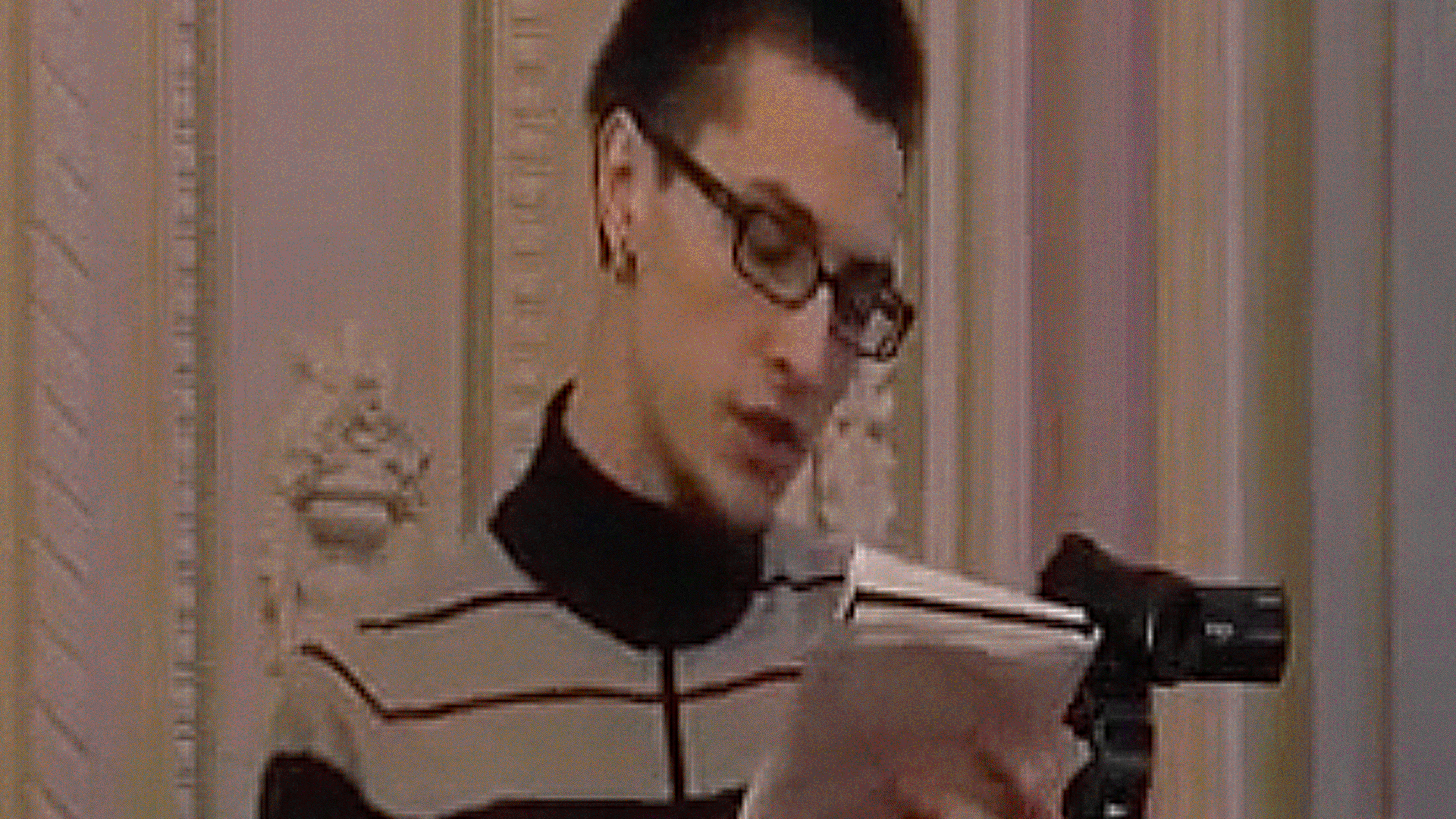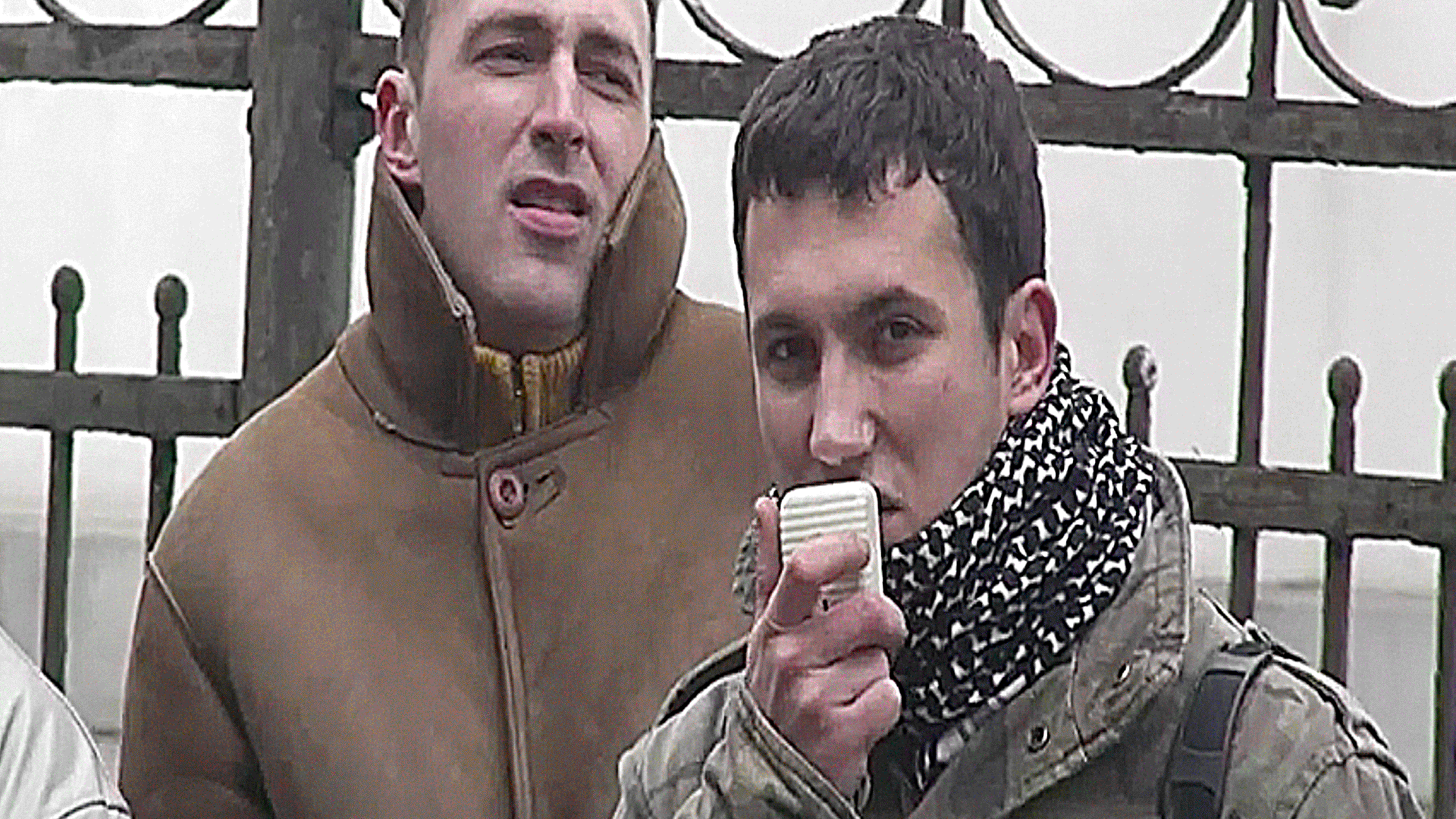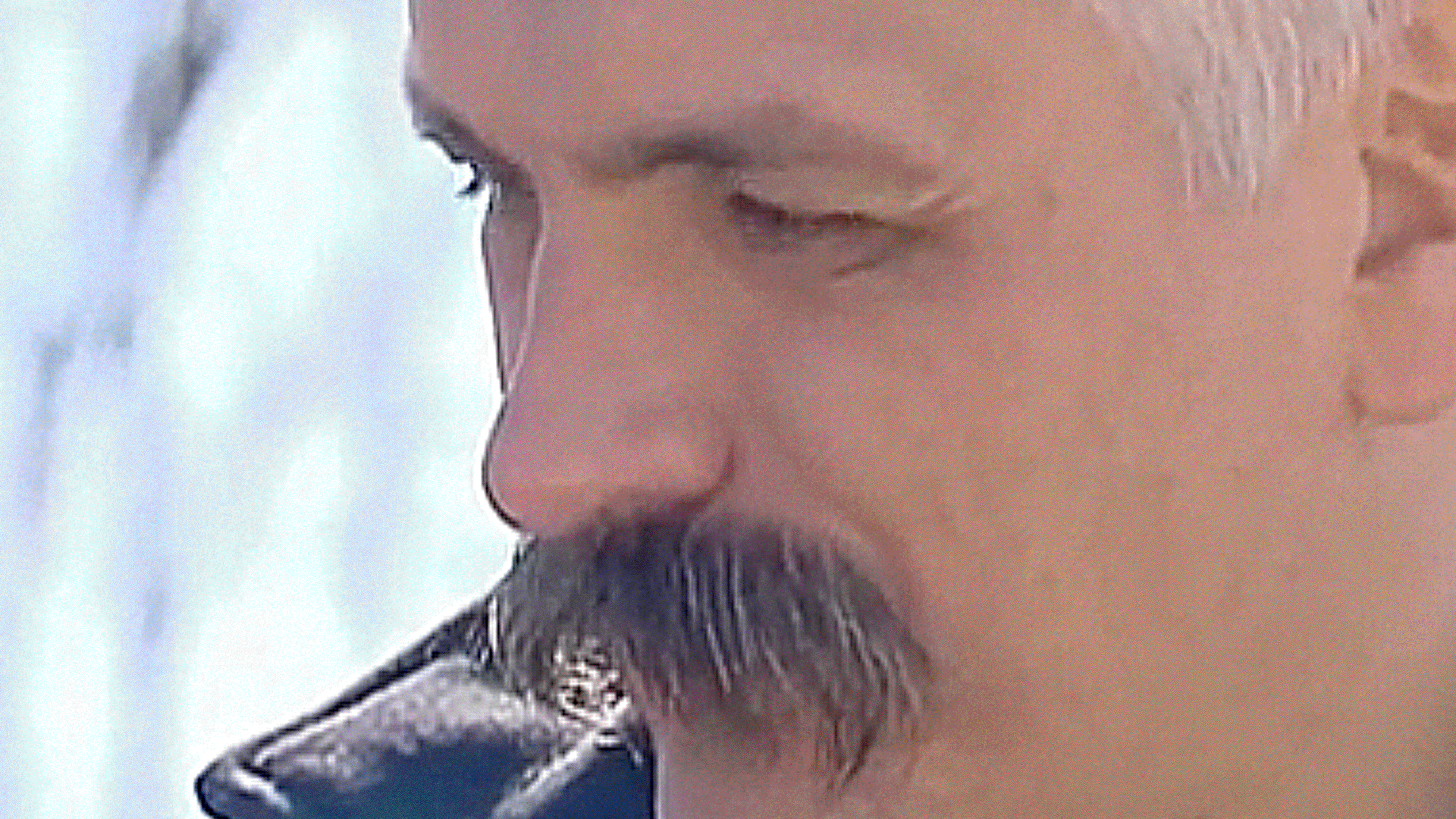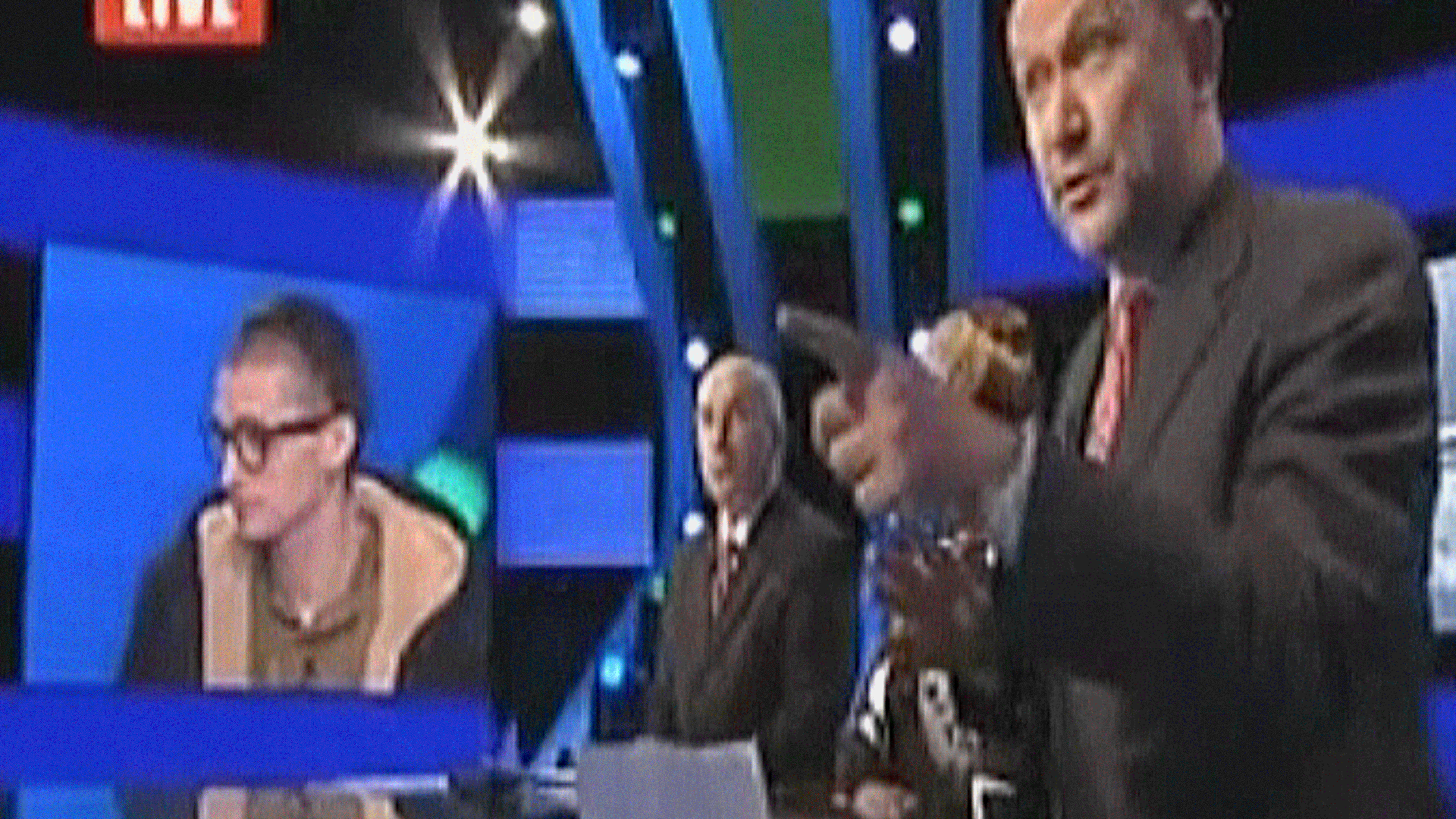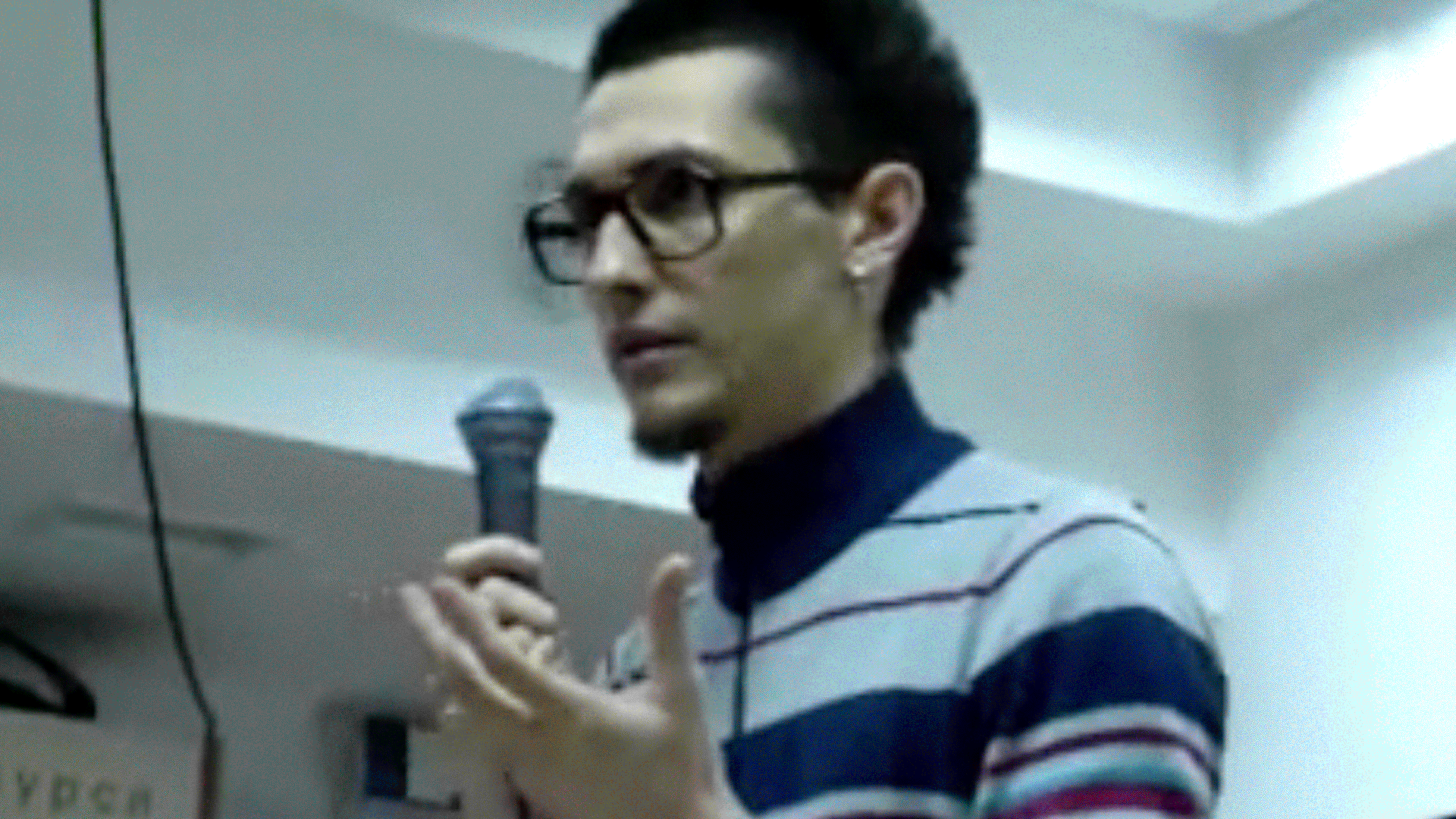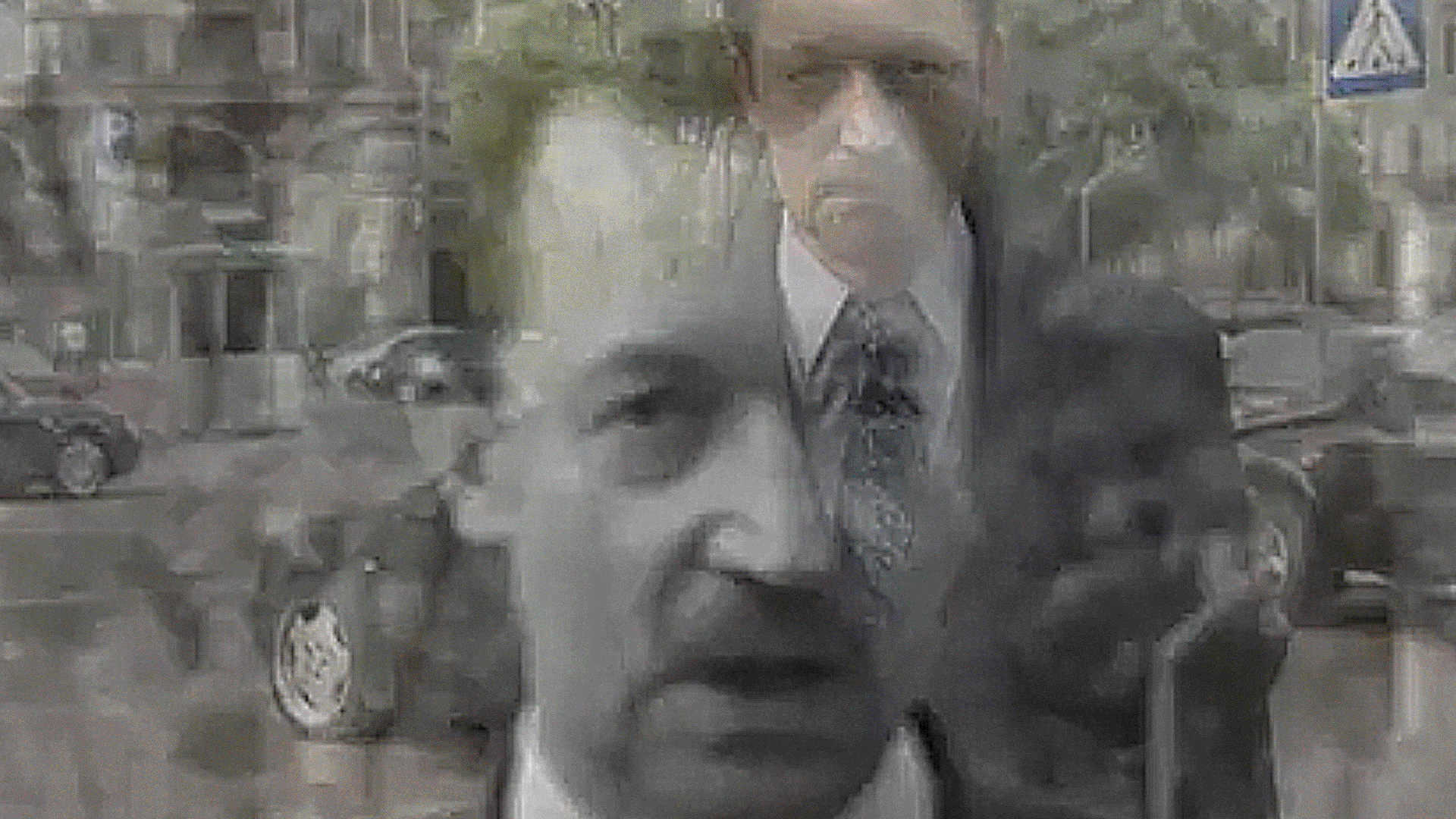REFUGEE PROFILE OF ANATOLI ULYANOV
Anatoli Ulyanov after the second attack (March 13, 2009) / Photo by Natasha Masharova
On July 20, 2018, Anatoli Ulyanov and Natasha Masharova were granted asylum in the U.S. with the support of Human Rights First and pro-bono attorneys from Kobre and Kim (Benjamin Sauter, Steven W. Perlstein). This text is a summary of the key events that led to Mr. Ulyanov’s persecution in Ukraine due to his anti-nationalist views and advocacy for the LGBTQ+ community.
INTRODUCTION
Anatoli Ulyanov is an artist, journalist, and cultural critic who, by 2009, was a prominent symbol of progressive thought in Ukraine. He publicly opposed the extreme nationalism and censorship that was rising in Ukrainian society after the “Orange Revolution” (2004).
As he gained prominence, Anatoli became a target of the ultranationalist groups and politicians he was opposing. One such figure was Dmytro Korchynsky, the founder of the Bratstvo, a militant organization that Mr.Korchinsky describes as the “Orthodox Taliban” and “Christian Hezbollah.”
Korchynsky and other conservatives in the government of Ukraine, including Danilo Yanevsky and Leonid Chernovetsky (both of whom played major roles in the Ukrainian government’s censorship body, the “Morality Commission,” that Mr. Ulyanov publicly opposed) chose Anatoli as a target to punish on account of his progressive political opinions and support for Ukraine’s LGBTQ+ community.
Anatoli first encountered Korchinksy in 2007 during a televised debate, during which Mr. Ulyanov strongly criticized Korchinsky’s nationalistic ideas. Shortly after the debate, the media recorded Korchinsky declaring that he would “organize a beating” for Anatoli because he had to “suffer for his convictions.” A month later, Korchynsky was again reported as wanting to subject Anatoli to “corporal punishment” and judge him in the religious court of “Orthodox Sharia” law.
Undeterred, Anatoli continued expressing his political opinions and opposition to the nationalistic agenda. In 2008, he began to turn his focus to the increased activities of the Ukrainian “Morality Commission,” a government body tasked with censorship to protect “traditional Ukrainian values.” Danilo Yanevsky, a member of the Commission, had stated that he “stand[s] for implementation of censorship” in Ukraine because “[s]laves need no freedom of speech” and “need to sit with their mouth shut.”
On January 29, 2009, Anatoli attended a meeting of the Morality Commission, read an unidentified piece of literature, and asked the Commission members to give their opinions on it. The head of the Morality Commission declared the piece pornographic. Anatoli then revealed that it was an excerpt from Henry Miller’s “Tropic of Cancer”, ridiculed the Commission for its unfamiliarity with an important piece of literature, and argued that the Commission was unfit to act as arbiters of artistic or literary merit.
On March 3, 2009, Anatoli attended a Morality Commission hearing involving the newspaper Blik. When he arrived, Mr. Ulyanov was met by a mob led by a local Bratstvo leader, Dmitry Linko. Linko spat on Anatoli and led the mob in chants of “Ulyanov is a faggot! Ulyanov is a faggot!”.
On March 13, 2009, just ten days after Anatoli was denigrated as a “faggot” and spit on by the Bratstvo-led mob, he gave a television interview in which he again expressed his opposition to censorship. After concluding the interview, Anatoli was confronted in the streets by a stranger, who spat on and brutally beat Mr. Ulyanov in broad daylight.
An hour later, the Bratstvo issued a statement on their website entitled “Pervert-blasphemer punished,” in which they took credit for the attack:
"Today, art critic and homosexual A. Ulyanov, known on the internet for his blasphemous and anti-Christian writings, was yet again punished in the Kiev city center near the National Opera building. Unfortunately, not everyone who wanted to could participate in the execution. See you next time, A. Ulyanov!"
In an interview broadcast on television two months later, Korchynsky stated that Anatoli “obviously wants to be abused. He does not know how difficult it is to pick up knocked-out teeth with broken hands.”
When Anatoli approached the Kiev police to report this attack, he was mocked. After asking if Anatoli was gay, the police told him to hire a bodyguard or lift weights so that he could defend himself like a “real man.”
The police took no steps to protect Ulyanov. Indeed, just a few days after the attack, an advisor to the mayor of Kiev published an official statement downplaying the beating and saying they would take action against its instigators only if the incident “was not some ordinary domestic squabble in a complicated life of some talkative people.”
The Mayor of Kiev at the time was Leonid Chernovetsky, who was a primary author of the law creating the Morality Commission and oversaw a public television program hosted by Korchinsky.
On March 28, 2009, Anatoli headed to a café in Kiev with Natasha Masharova, another couple, and a bodyguard supplied by a security agency that Anatoli engaged after realizing that his appeals to the Kiev police had fallen on deaf ears. Outside the café, the group saw Dmitry Linko. After Anatoli and Linko recognized each other, Linko began attacking the bodyguard with stones. Anatoli escaped unharmed, but in light of the injuries his bodyguard sustained in the attack, the security agency advised him that he needed to abandon his activism or leave Ukraine.
On April 23, 2009, Anatoli appeared on the popular Ukrainian television show “Shuster Live” to criticize government censorship. Danilo Yanevsky was another guest on the show and used the appearance as a platform to publicly threaten Anatoli once again:
“You will get punched. And you will get punched a second time.”
Faced with this explicit threat by a member of the Ukrainian government, Mr. Ulyanov and Ms. Masharova fled the country.
Notably, the same individuals who threatened and beat Anatoli in 2009 have since solidified their positions in the Ukrainian government. Dmitry Linko was elected to the Ukrainian parliament in 2014, as was Oksana Korchynska, Mr. Korchynsky’s wife.
The Bratstvo is also closely aligned with armed paramilitary forces. Korchynsky founded one such group, St. Mary’s Battalion, which uses Bratstvo connections in Kiev to recruit soldiers. Linko is a member of the similarly notorious Azov Battalion.
After fleeing Ukraine in April 2009, Mr. Ulyanov and Ms. Masharova made their way to the United States (2011) and applied for asylum.
Anatoli is unable and unwilling to return to Ukraine due to well-documented past persecution and well-founded fear of future persecution on account of his anti-nationalist political opinions and perceived membership in the gay community.
This qualifies him as a “refugee”.
STATEMENT OF FACTS
1. Anatoli Creates Proza and Is Launched Into a Prominent Public Role.
In 2003, Anatoli Ulyanov and Natasha Masharova created a website called Proza.This platform would eventually reach thousands of readers daily, solidifying Mr. Ulyanov as an influential anti-nationalist voice and attracting the attention of dangerous politicians.
After the Orange Revolution (2004), Anatoli focused on opposing the xenophobic and conservative nationalist ideologies he saw dominating public discourse and taking root in government institutions.
At the same time, Anatoli began publishing works in support of the LGBTQ+ community, including erotic art and essays challenging the stigmatization of homosexuality.
Proza’s contributions to cultural dialogue garnered praise from Konstantin Doroshenko, a prominent Ukrainian art critic and curator:
"In the first decade of the 21st century, Proza became the primary platform for free cultural debates and provided an invaluable critical archive in the realms of contemporary art, literature, and music. Proza helped establish Anatoli as a well-known Ukrainian social critic and thinker. He was the foremost advocate for the principles of open society, denouncing ultra-nationalistic, xenophobic, and homophobic trends in today’s Ukraine.”
By 2007, the site received 14,000 visitors per day. Anatoli soon became a regular guest on television programs. As Anatoli gained popularity, he also attracted the attention of the Bratstvo, an ultranationalist organization that sought to “protect the interests of Jesus Christ by the Islamic Revolution’s methods” from Mr. Ulyanov and other proponents of free expression and tolerance.
2. December 2008–February 2009: Anatoli Publicly Campaigns Against The Ukrainian “Morality Commission.”
In 2008, the Morality Commission intensified its censorship efforts. Anatoli opposed these efforts, viewing the Morality Commission as a dangerous tool for conservative politicians to consolidate power and gag their opponents.
In an effort to call attention to these efforts, Anatoli created a website called Monitoring Group for the Commission on Morals (or “Moral Monitor”) in December 2008. Mr. Ulyanov invited a variety of civil activists to use the website as a platform to comment on the activities of the Morality Commission and related acts of censorship.
On January 29, 2009, Anatoli attended a meeting of the Morality Commission and publicly ridiculed the Commission’s activities. Shortly after, he launched an online civic campaign called “Zerkalo” (“Mirror”) on Moral Monitor to promote democratic values and push for the repeal of the Morality Law. Around the same time, Anatoli gave a speech at Kiev’s “E” Bookstore denouncing the Morality Commission’s censorship of Oles Ulyanenko, a prominent and controversial Ukrainian writer. Anatoli’s speech specifically criticized Leonid Chernovetsky and Danilo Yanevsky.
3. March 2009: The Bratstvo Begins a Series Of Threats and Attacks Against Anatoli to Silence His Pro-Gay Rights and Anti-Nationalist Opinions.
Alongside his work on Proza and Moral Monitor, Anatoli was the Deputy-in-Chief of Sho Magazine (2007-9). Sho is a print publication whose motto is “the magazine of cultural resistance.” Among other subjects, the magazine published articles supporting the gay community.
Anatoli was recognized for his work in 2013, when he was featured on the cover of “One of Us” queer magazine, one of the few Ukrainian publications that advocated for LGBTQ+ rights. As a result of his support for the LBBTQ+ community, Anatoli is often perceived as gay in Ukraine and is treated accordingly.
"I cannot overemphasize the importance of Proza website to LGBT community in Ukraine before it was censored and shut down by Ukrainian authorities. Ukraine is extremely homophobic country, and there a few publications that are willing to publicly express pro-LGBT views. Anatoli was one of the few willing to take the risk, and he was (and remains) a powerful advocate for the freedom of expression for the LGBT community." – Dmitry Volchek, editor of Mitin Zhurnal, publisher of Kolonna Publications, and a host on Radio Liberty (RFE/RL)
The March 3, March 13, and March 28, 2009 Attacks
Responses to Anatoli’s activism turned violent in early 2009.
On March 3, 2009, Anatoli attended a rally outside of the Regional Administrative Court of Kiev, where a hearing was being held on the Morality Commission’s censorship of the Ukrainian newspaper Blik. Members of the Bratstvo, including Dmitry Linko, had also gathered outside the courthouse in support of the Morality Commission. When Anatoli arrived to report on the hearing, the mob of Bratstvo supporters began to chant, “Ulyanov is faggot! Ulyanov is faggot!”. Then Linko himself spat on Anatoli.
Ten days later, on March 13, 2009, Anatoli was violently attacked by another Bratstvo member in broad daylight after he spoke out against state censorship in an interview with the Ukrainian television channel NTN. An individual approached him and asked if he was Anatoli Ulyanov. When Anatoli responded affirmatively, the man spat in his face, knocked him to the ground, and beat and kicked him repeatedly. Anatoli was left with multiple bruises and cuts. Roughly an hour after the beating, the Bratstvo published a post on its website entitled “Pervert-blasphemer punished”:
"Today, art critic and homosexual A. Ulyanov, known on the internet for his blasphemous and anti-Christian writings, was yet again punished in the Kiev city center near the National Opera building. Unfortunately, not everyone who wanted to could participate in the execution. See you next time, A. Ulyanov!"
When he approached the Kiev police to report the incident, Anatoli was mocked. The police asked Anatoli if he was gay and told him to hire a bodyguard or lift weights at the gym so that he could defend himself like a “real man.”
A few days later, Kazbek Bektursunov, an advisor to the Mayor of Kiev, published City Hall’s official statement on the March 13 beating. At the time, the Mayor was Leonid Chernovetsky, a primary author of the law that created the Morality Commission. The Mayor’s office also oversaw a public television program, The Fourth Power, hosted by Korchinsky. The advisor brushed the incident aside, saying action would be taken only if the attack “was not some ordinary domestic squabble in a complicated life of some talkative people.” With the apparent alliance between government officials and the Bratstvo exposed, Anatoli, at the urging of his family, did indeed hire bodyguards.
In a chilling twist, the police department of Kiev later released a press video about the attack on Anatoli. The video reported that the attack was committed by Atillo Dulo Dovzhenko-Yanoshevich, a member of the Bratstvo, who was only briefly detained. In a clear warning to Anatoli, the police video also included the March 13 posting on the Bratstvo website described above, along with a recording of an interview with Bratstvo leader Dmytro Korchynsky stating that Anatoli “obviously wants to be abused. He does not know how difficult it is to pick up knocked-out teeth with broken hands.” No actions were ever taken by the police against Korchynsky.
On March 28, 2009, Bratstvo leader (and future parliamentary representative) Dmitry Linko attempted yet another assault on Anatoli. That afternoon, Mr. Ulyanov and Ms. Masharova were in Kiev with two friends. The group was on its way to a café in central Kiev when they encountered Linko. After Anatoli and Dmitry recognized each other, Linko began to fight with Mr. Ulyanov’s bodyguard. Linko hit the bodyguard with stones, leaving his head bloodied, and then fled.
The significance of the attacks on Anatoli Ulyanov was not lost on his supporters. Eugene Minko of Telekritika summarized the significance of Anatoli’s work and its connection to the threats against his safety:
"The attack of the thugs on Anatoli Ulyanov—the expected addition to a series of threats and provocations against this journalist. And Ulyanov’s fault in arousing the degenerative layer of population is obvious—he became too noticeable [. . .] Anatoli Ulyanov is the major phenomenon of the Ukrainian journalism of the 2000s. He is the only one among his colleagues, who created his own distinctive imagery system and his own language. Being familiar with the theory and practice of contemporary art, Ulyanov knew quite well the importance of a radical, shocking gesture in the era of information satiety. That was the only way to quickly draw the attention of an inert audience to his message."
On April 24, 2009, Mr. Ulyanov and Ms. Masharova fled the country for their safety.
Proza was shut down by the Ukrainian government. The ultranationalists who had previously persecuted Anatoli rose to positions of power within the government.
While living in exile, Anatoli Ulyanov and Natasha Masharova launched Loooch (media banned in Russia for "propaganda of homosexuality") and Magic Eyew Work, which is a production house focused on documentary filmmaking.


